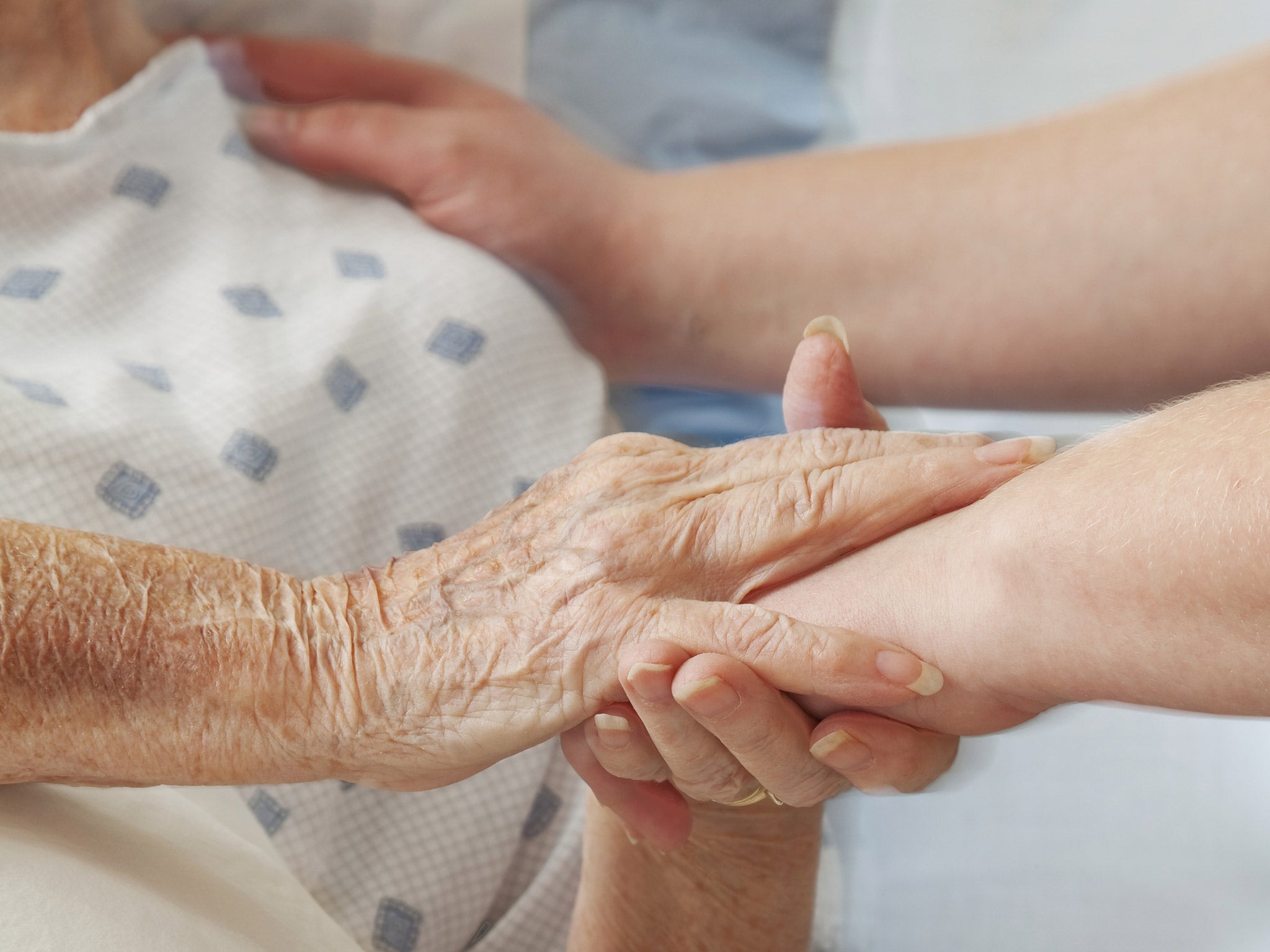Many have a fear of dying – this report shows why
While medical advances have profoundly altered the course of human life, when it comes to the end there is much less certainty about how to manage it

Your support helps us to tell the story
From reproductive rights to climate change to Big Tech, The Independent is on the ground when the story is developing. Whether it's investigating the financials of Elon Musk's pro-Trump PAC or producing our latest documentary, 'The A Word', which shines a light on the American women fighting for reproductive rights, we know how important it is to parse out the facts from the messaging.
At such a critical moment in US history, we need reporters on the ground. Your donation allows us to keep sending journalists to speak to both sides of the story.
The Independent is trusted by Americans across the entire political spectrum. And unlike many other quality news outlets, we choose not to lock Americans out of our reporting and analysis with paywalls. We believe quality journalism should be available to everyone, paid for by those who can afford it.
Your support makes all the difference.Hospitals exist to cure people. If your problem is fixable they will do their best to fix it. But what if it is not?
Medical advances have profoundly altered the course of human life. But when life comes to an end there is much less certainty about how to manage it. This has caused callousness, inhumanity and suffering on a wide scale, as laid bare in the latest report from Julie Mellor, the UK’s Health Service Ombudsman.
The examples she cites – patients dying in dreadful pain, denied their right to end their days at home, with relatives left unaware of what is happening and unable to say goodbye – are hard to read, difficult to comprehend and will generate fear and anger among the living. It does not have to be like this.
Many elderly people approach the end of their lives with a degree of acceptance. They do not fear death but they do fear dying. This report shows why. It is what leads to debate over assisted suicide, travelling to Dignitas in Switzerland and the rights and wrongs of giving death a helping hand. Yet with good palliative care, a good death is not just possible – it should be routine.
Ms Mellor, whose report is based on 136 complaints that she upheld about end of life care, claims there is potential to improve the experience of all those who die an expected death – some 355,000 a year.
This is almost certainly true. Palliative care is a young specialty and fewer than half of those patients who need it receive it. Hospices, which provide high quality end of life care, accommodate just 6 per cent of those who die each year. Ignorance among those not trained in palliative care is what causes suffering. Doctors and nurses do not know how to broach the subject of death with patients and relatives and refuse requests for increased doses of morphine because of misplaced fears about addiction.
More than a decade ago, palliative care specialists in Liverpool devised a checklist to assist with care of the dying. Known as the Liverpool Care Pathway (LCP) it eased the passing of those at the end of their lives for years, until it became discredited. It emerged that thousands had been placed on it without their consent and without the knowledge of relatives because staff had found the subject too difficult to broach.
In 2013 it was announced it would be phased out following a government review – but it left the fundamental problem unaddressed: how to provide people with dignity in their final days and hours.
Death is a process, not an event. When this irreversible point has been reached, the role of medicine should be to assist the process, not fight against it. As the ombudsman has shown, we still desperately need a better, more sensitive way of handling it.
Join our commenting forum
Join thought-provoking conversations, follow other Independent readers and see their replies
Comments